Английский язык для специальных и академических целей: Международные отношения и зарубежное регионоведение. Часть 1 [заметки]
1
> В качестве ориентира предлагается скорость быстрого чтения в формате IELTS — 300 слов в минуту
2
> Flotsam and jetsam — rubbish floating in the water after a ship has been wrecked and rubbish washed on to the land
3
> To dwindle — diminish gradually in size, amount, or strength
4
> Discernible — able to be seen, noticed, or understood
5
> Unblemished — without any faults or mistakes to spoil your reputation or record
6
> Indigenous — originating in and characteristic of a particular region or country; native
7
> To relinquish — to give up, abandon, surrender
8
> To wane — to decrease gradually in size, decline, approach an end
9
> Indentured — наемный
10
> Prone — having a tendency, inclined
11
> Nature vs nurture debate — the phrase “nature and nurture” in its modern sense was coined by the English Victorian polymath Francis Galton in discussion of the influence of heredity (nature) and environment (nurture) on social advancement
12
> Benign — favourable, beneficial
13
> A means-tested benefit in the United Kingdom is a payment available to people who can demonstrate that their income and capital are below specified limits. It is a central part of the Welfare state in the United Kingdom.
14
> The term “entitlement culture” suggests that many people now have highly unreasonable expectations about what they are entitled to.
15
> Prince George, the son of the Duke and Duchess of Cambridge and third in line to the throne, was born
16
> To effect (formal) — to cause (something) to happen, bring about
17
> the sister of James II
18
> The German dynasty assumed the English name of Windsor in 1917
19
> To bestow sth on/upon sb (formal) — to give someone something of great value or importance
20
> беды
21
> Coaling stations (fuelling stations) are repositories of fuel (coal & later oil) that have been located to service commercial and naval vessels.
22
> Gunboat diplomacy — diplomacy conducted by threats of military intervention, especially by a major power against a militarily weak state (дипломатия канонерок)
23
> Heyday — the period of greatest popularity, success, or power; prime.
24
> Creed — a summary of articles of religious beliefs, any system of beliefs or principles.
25
> “American Exceptionalism: A Double-Edged Sword”, 1997
26
> To pall — to become less appealing or interesting
27
> Percentile — a) in statistics any of 99 points at which a range of data is divided to make 100 groups of equal size; b) any of these groups.
28
> Paternalism — a policy or practice of treating or governing people in a fatherly manner, especially by providing for their needs without giving them rights or responsibilities
29
> insidious — proceeding in a gradual, subtle way, but with very harmful effects
30
> grist to/for the mill — anything that can be turned to profit or advantage
31
> stasis — a state or condition in which things do not change, move, or progress
32
> incarceration — the state of being confined in prison; imprisonment
33
> subprime — denoting or relating to credit or loan arrangements for borrowers with a poor credit history
34
> Progeny — a descendant or the descendants of a person, offspring
35
> Stephen Martin Walt (born July 2, 1955) is an American professor of international affairs at Harvard University's John F. Kennedy School of Government.
36
> Paean ['pi :an] — a joyous song or hymn of praise, tribute, thanksgiving, or triumph
37
> Waterboarding — an interrogation technique in which water is forced into a detainee's mouth and nose so as to induce the sensation of drowning
38
> Extraordinary rendition — (especially in the US) the practice of sending a foreign criminal or terrorist suspect covertly to be interrogated in a country with less rigorous regulations for the humane treatment of prisoners
39
> Dormant — not doing anything at this time : not active but able to become active
40
> Contentious — exhibiting a tendency to quarrels and disputes
41
> Benign — not causing harm or damage
42
> Sluggish — economically inactive, slow
43
> Insular — separated from other people or cultures
44
> Mark Leonard (born 1974) is a British political scientist, and writer. He founded the European Council on Foreign Relations (ECFR) in October 2007, for which he serves as executive director.
45
> In the European Union (EU), enhanced cooperation is a procedure where a minimum of nine EU member states are allowed to establish advanced integration or cooperation in an area within EU structures but without the other members being involved. As of February 2013 this procedure is being used in the fields of divorce law and patents, and is approved for the field of a financial transaction tax.
46
> /ew.ro:'paj.us/
47
> John Wiles is Senior Adviser to EPC (European Policy Centre) on EU politics and institutions, Chair of the EU Politics and Governance Forum
48
> Parochial — having a limited or narrow outlook or scope
49
> To evangelise — to be very enthusiastic about something and tell people how good it is
50
> James Ellison is Reader in International History at Queen Mary, University of London and author of The United States, Britain and the Transatlantic Crisis: Rising to the Gaullist Challenge 1963-68 (Palgrave Macmillan, 2007).
51
> In December 2011, David Cameron refused to sign a tax and budget pact to tackle the Eurozone debt crisis claiming he had to protect key British interests, including its financial markets.
52
> Emollient — attempting to avoid confrontation or anger; calming or conciliatory
53
> To reprise — to repeat the principal points or stages of
54
> Hubris — excessive pride or self-confidence
55
> Vituperative — full of angry and cruel criticism
56
> Spat — a brief quarrel
57
There is the old joke about British reports of ‘Fog in the Channel — Continent cut off.'
58
... Angela Merkel and Nicolas Sarkozy tried to pump blood into the collapsing veins of the euro ...
59
> 1. One of the world's top climate diplomats, John Ashton is now an independent commentator and adviser on the politics of climate change. From 2006-12 he served as Special Representative for Climate Change to three successive UK Foreign Secretaries, spanning the current Coalition and the previous Labour Government. He is a co-founder and, from 2004-6, was the first Chief Executive of E3G. From 1978-2002, after a brief period as a research astronomer, he was a career diplomat, with a particular focus on China. He is a visiting professor at the London University School of Oriental and African Studies, and a Distinguished Policy Fellow at the Grantham Institute for Climate Change at Imperial College.
2. E3G (Third Generation Environmentalism) is an independent organisation acting to accelerate the global transition to sustainable development.
60
> Расстроить чьи-л.замыслы
61
> Identify the title of the piece you are summarizing, the date of publication, the genre or type of piece (journal article, essay, economic report, etc.)
62
> Carter's administration (1977-1981) is remembered for many failings (inflation, energy crisis, war in Afghanistan, and hostages in Iran)
63
> Mark Leonard is Co-Founder and Director of the European Council on Foreign Relations, the first panEuropean think-tank.
64
> Charles Grant, “Marine Le Pen and the rise of populism”, Centre for European Reform, 20 July 2011, available at http://centreforeuropeanreform.blogspot.com/2011/07/marine-le-pen-and-rise-of-populism.html.
65
> Ulrich Speck is a visiting scholar at Carnegie Europe in Brussels, where his research focuses on the European Union's foreign policy and Europe's strategic role in a changing global environment.
66
> having a strong effect due to the use of clear simple language and not too many words.
67
> Middle East and North Africa
68
> Alternatively: start with the main ideas, then write down the thesis statement that clearly sums up the main idea of the whole text.
69
> Speaker of the House of Commons since 2009
70
> Fairy lights — small lights used for decorating Christmas trees
71
> Poised — ready or prepared for something
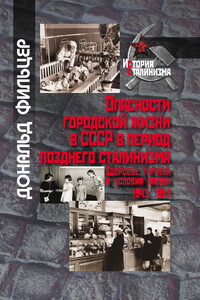
Перед вами первое подробное исследование норм жизни населения России после Второй мировой войны. Рассматриваются условия жизни в городе в период сталинского режима. Основное внимание уделяется таким ключевым вопросам, как санитария, доступ к безопасному водоснабжению, личная гигиена и эпидемический контроль, рацион, питание и детская смертность. Автор сравнивает условия жизни в пяти ключевых промышленных районах и показывает, что СССР отставал от существующих на тот момент норм в западно-европейских странах на 30-50 лет.
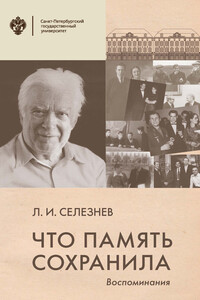
В книге воспоминаний заслуженного деятеля науки РФ, почетного профессора СПбГУ Л. И. Селезнева рассказывается о его довоенном и блокадном детстве, первой любви, дипломатической работе и службе в университете. За кратким повествованием, в котором отражены наиболее яркие страницы личной жизни, ощутимо дыхание целой страны, ее забот при Сталине, Хрущеве, Брежневе… Книга адресована широкому кругу читателей.
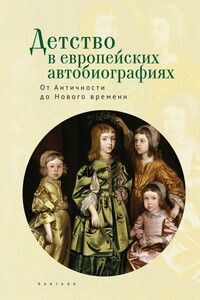
Содержание антологии составляют переводы автобиографических текстов, снабженные комментариями об их авторах. Некоторые из этих авторов хорошо известны читателям (Аврелий Августин, Мишель Монтень, Жан-Жак Руссо), но с большинством из них читатели встретятся впервые. Книга включает также введение, анализирующее «автобиографический поворот» в истории детства, вводные статьи к каждой из частей, рассматривающие особенности рассказов о детстве в разные эпохи, и краткое заключение, в котором отмечается появление принципиально новых представлений о детстве в начале XIX века.
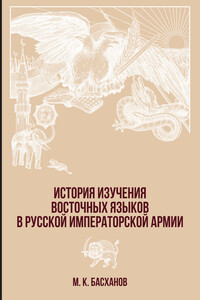
Монография впервые в отечественной и зарубежной историографии представляет в системном и обобщенном виде историю изучения восточных языков в русской императорской армии. В работе на основе широкого круга архивных документов, многие из которых впервые вводятся в научный оборот, рассматриваются вопросы эволюции системы военно-востоковедного образования в России, реконструируется история военно-учебных заведений лингвистического профиля, их учебная и научная деятельность. Значительное место в работе отводится деятельности выпускников военно-востоковедных учебных заведений, их вкладу в развитие в России общего и военного востоковедения.
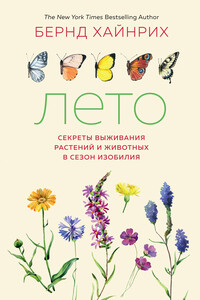
Как цикады выживают при температуре до +46 °С? Знают ли колибри, пускаясь в путь через воды Мексиканского залива, что им предстоит провести в полете без посадки около 17 часов? Почему ветви некоторых деревьев перестают удлиняться к середине июня, хотя впереди еще почти три месяца лета, но лозы и побеги на пнях продолжают интенсивно расти? Известный американский натуралист Бернд Хайнрих описывает сложные механизмы взаимодействия животных и растений с окружающей средой и различные стратегии их поведения в летний период.
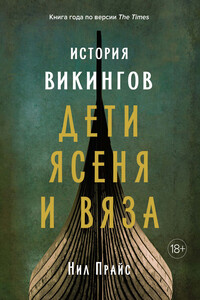
Немногие культуры древности вызывают столько же интереса, как культура викингов. Всего за три столетия, примерно с 750 по 1050 год, народы Скандинавии преобразили северный мир, и последствия этого ощущаются до сих пор. Викинги изменили политическую и культурную карту Европы, придали новую форму торговле, экономике, поселениям и конфликтам, распространив их от Восточного побережья Америки до азиатских степей. Кроме агрессии, набегов и грабежей скандинавы приносили землям, которые открывали, и народам, с которыми сталкивались, новые идеи, технологии, убеждения и обычаи.